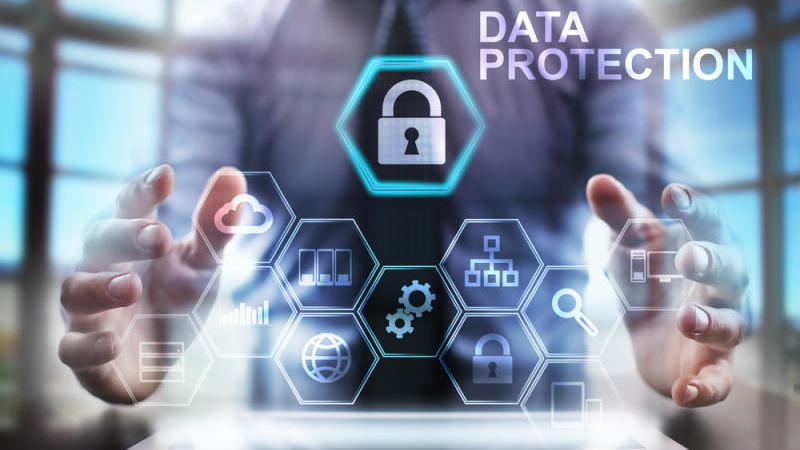Data Privacy is having its day
Protection our digital identities has never been more important

You’d be forgiven for asking, how relevant now is Data Privacy Day? The online universe definitely looked a lot scarier in 2007 - when Data Privacy Day first launched - than it does today.
Our digital lives are more real, more active, and consumers and businesses both understand the need to protect themselves and their customers, now that data is worth its weight in gold. Whether it’s our everyday data for online banking or ecommerce, or business-level security around regulations or ethical AI, we’re probably safer than we’ve ever been.
So if we’re more privacy-aware than ever, why can cybercrime still seem more of a worry than being pickpocketed in the street? Because the digital-real life blur is only increasing and we’re embracing it, expecting services and speed that deliver only the best experiences. Even lifestyle products are getting in on the act, embedding RFID blockers in anything from wallets to travel luggage to help us manage our privacy.
- Data Protection Day 2019: Privacy firmly in the limelight
- The war for encrypted data
- Americans reluctant to pay for privacy

Data security education
While we navigate this slightly uncomfortable but welcome world of better experiences, we do need to keep educating around data security. At best, it’s wrong to assume that we’re all technically equals – as anyone who has tried to teach a parent how to spot a data-scam will know. At worst, the frequency with which we see the words ‘cybersecurity’ and ‘attack’ together have given us a preview of the damage that cyber-insecurity might do.
So for what it’s worth, let’s tally up the tips:
- Avoid using public and open Wi-Fi networks, or use a VPN if you really need to use an open Wi-Fi network.
- Install software updates on your devices, and make sure they’re from the proper sources.
- Don’t use the ‘Remember me’ functionality for online banking. Use a password manager instead to store your secure passwords.
- Choose a bank’s native mobile app before mobile web, but never “sideload” a banking app. Always access from the proper sources.
- Use security questions to protect your account, if available. However, don’t use questions where someone could easily guess the answer by looking at your social media. Pet’s names are out.
- Use two/multi factor authentication, if available. In addition, put pressure on your service provider to establish it if it’s not available.
- Set up banking alerts for possible breach attempts, and make sure you monitor these alerts!
- Only use trusted sites for your online shopping, and only provide personal information or credentials over secure links (check if the site address begins with https://)

Making every day Data Privacy Day
As these calendar moments do, raising awareness is important. But what can we do to make Data Privacy Day even more useful? After GDPR, companies are obliged to show what data they have and what they do with it, and risk hefty fines if for anything less than transparency. . If we quite reasonably assume that no one is going to look after our money as well as we do ourselves, then are the financial services that go beyond regulation, and build a name in data-trust the ones who will win our digital hearts and minds?
Trustly (employer disclaimer!) take it super seriously, as you would expect for a company who has put the biggest clue in its name. Blending computer science with the cultural, Trustly is a payment services provider who assume that it is possible to have the same trust in our online payment transactions as we have in our banks. How? By using your own bank details to make payments online.
There are several providers of this payment method around Europe and growing interest because of its convenience, speed and simplicity while having the same security level afforded by banks. Customers are always aware of how Trustly is processing their data, and transactions are registered with the consumer’s bank using the same encryption that the banks themselves use. In addition, Trustly only collect the data needed for the kind of big picture concerns that businesses really should handling on our behalf – such as anti-money laundering, counter-terrorism legislation and monitoring payment flows. So paying with you bank details actually helps your bank to tell that one payer is not another. With 2.5 million payments on a monthly basis and never a single case of compromised user data… being CISO at a company named after perhaps our most important online emotion is certainly an interesting spot to be.
In conclusion, Data Privacy Day is more relevant than ever. Second only to Earth Day, it will probably progress the most year-on-year. How we learn about the value of our data, and who we trust to understand it as well as we do, will need to evolve fast. There’s a very human need to stay close to the things that belong to us – our money and our data. As digital finance gets bigger and better, maybe we’ll have an emoji for trust come next January.
Dimitrios Stergiou, Chief Information Security Officer at Trustly
- Protect your online privacy with the best VPN
Sign up to the TechRadar Pro newsletter to get all the top news, opinion, features and guidance your business needs to succeed!
Dimitrios Stergiou is the Group Chief Information Security Officer for Trustly. He is an experienced senior Information security and Risk professional with over 20 years’ experience in Risk Management, IT audits and Information security.
Dimitrios holds a M.Sc. in Information Security, as well as an MBA and is a Certified Lead Implementer for ISO 27001:2013, Certified Information Security Manager (CISM), Certified Information Systems Auditor (CISA), Certified Risk and Information Systems Control (CRISC) professional and Certified Information Systems Security Professional (CISSP). Dimitrios is also a certified Certified Information Privacy Manager (CIPM) and Certified Information Privacy Professional (CIPP/E).
